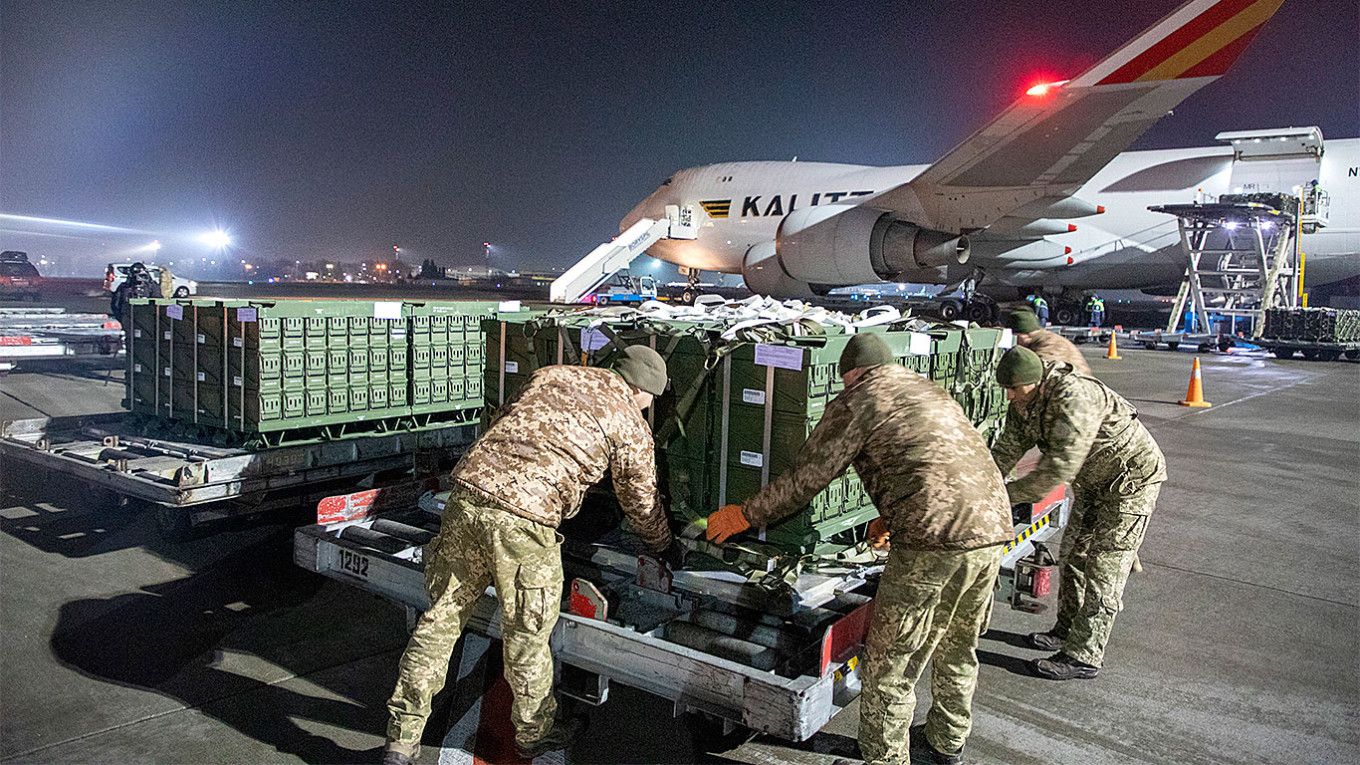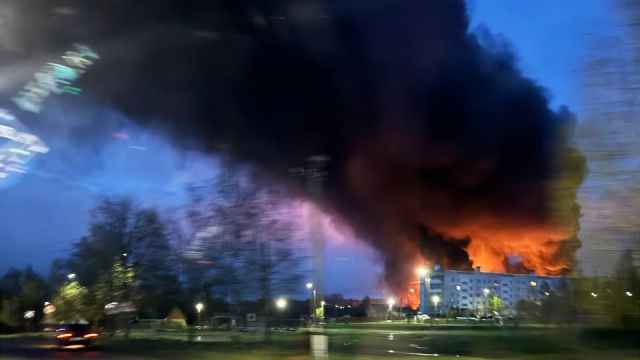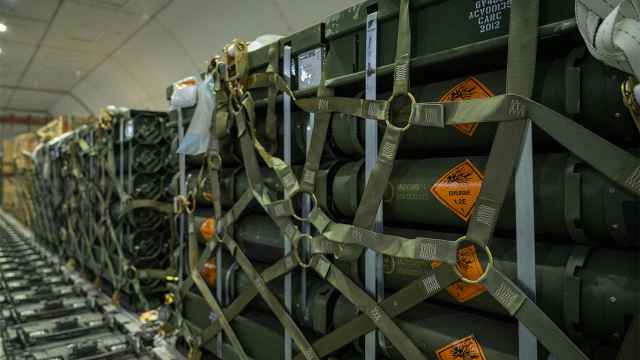After an initial rush of hope, doubt in the possibility of a Ukrainian victory has crept into Kyiv’s allies in the West, especially considering indications that Russia's cash reserves will be sufficient to fight for another year. But experience shows that the U.S. is capable of funding wars at a much greater scale and for much longer. The recent passage of $61 billion of aid is an encouraging sign that Kyiv’s allies still have the will to support Ukraine’s existential fight.
Three years into the Russian-Ukrainian war, Europeans' early overconfidence in Ukraine's victory and anticipation of a successful Ukrainian counteroffensive, had been replaced with despondency. Now, according to a survey by the European Council on Foreign Relations, only 10% of Europeans believe the war will end in a Ukrainian victory, half as many as expect Russia to win. 31% of respondents believe that the EU should continue to support Ukraine until it returns its territories, while 41% think that Europe should push Ukraine to negotiate. The failure of the 2023 counteroffensive, Russia's new offensive, and internal conflicts within the EU and the U.S. that have prevented the regular supply of money and weapons to Ukraine are contributing to this growing frustration.
Despite this, the majority of Americans support providing military aid to Ukraine, even if Donald Trump comes to power in America and the United States finally withdraws its support. Only a third of respondents believe Washington should reduce its support, while 20% think it should be increased.
At the same time, it cannot be said that supporting Ukraine would overstretch the American or European budgets. Over the two years of the war, European countries and organizations have provided Ukraine with 88.7 billion euros of military, humanitarian and financial aid, while the United States has provided $75 billion before the passage of the latest aid bill. Half of the 144 billion euros ($154 billion) the EU promised Ukraine has not been distributed. Therefore, experts monitoring aid to Ukraine, note that the EU could radically increase its support by simply accelerating its efforts without having to introduce any new aid packages.
For comparison, the U.S. spent the equivalent of $139 billion on the Gulf War, which lasted less than a year. The wars in Afghanistan and Korea each cost more than $400 billion. The wars in Iraq and Vietnam cost Americans more than a trillion dollars each, not counting the cost of rehabilitation and payments to veterans, which tends to double the cost of these wars even after fighting has ceased. The War on Terror was especially expensive, costing Washington over $8 trillion.
Against this background, the meager spending on assistance to Ukraine looks ridiculous. The benefits of supporting Kyiv in the fight against Russia, which has long been Washington’s main competitor and is the main destabilizer of the world order, obviously outweigh the benefits of investments in the fight against Vietnamese farmers and any terrorist groups.
Despite its economy being comparable to the United States, Europe has never invested so heavily in warfare before. However, the cost of Ukraine's defeat will largely fall on European shoulders. Even if the Russian-backed right-wingers gain significant support in the upcoming European Parliamentary elections, they are unlikely to want to be responsible for the tens of millions of Ukrainian refugees that will flood Europe again if Ukraine is defeated.
Ukraine is currently facing a shortage of money, shells, and human resources. Shell production in Europe should soon increase and cease becoming a problem by the end of the year. The shortage of money and weapons has more to do with a lack of political will in the EU and U.S. than any real constraints.
Despite Russia having three times the population of Ukraine, its army is far less efficient in its use of manpower. Furthermore, its mobilization potential is far more limited than many people think, as people with sufficient social and economic capital can avoid the draft. If Kyiv can build a system to successfully rotate troops off the front lines, raise military salaries, and recruit foreign mercenaries it could allow Ukraine to reduce Russia’s manpower advantage.
If Ukraine proves capable of holding the frontline for at least another year, it will pile pressure on Russia’s economy, which has been stagnant for six months. Economic growth since the beginning of the war has been fueled solely by the injection of state money into the military-industrial complex and military salaries. At current spending levels, the Russian National Welfare Fund, which provides most of Russia's spending on the war and keeping the Russian economy stable in isolation, is expected to be depleted by 2025, according to analysts.
In this regard, the government is desperately seeking new sources of budget replenishment: tax hikes are being discussed. Last year, the government temporarily stopped subsidizing oil refineries to sell their products domestically rather than exporting it for a higher price, which provoked a crisis in the Russian gasoline market. The Yermak-McFaul group believes that to undermine Russia's ability to continue the war, its oil and gas revenues need to be cut by $50 billion a year. For now, efforts to limit Russia's oil revenues, including destroying oil refineries, are one of the surest ways to bring the war to a close.
The EU and the U.S. are capable of supporting Ukraine for as long as is necessary. They have enough resources to do so. History shows that the United States has spent far more resources on much less important conflicts. In addition, America is capable of replacing and displacing Russian oil and gas exports because it has enough of these resources and world market prices favor the development of these industries.
Public opinion remains consolidated behind this. In Europe and America, 70% of citizens are in favor of continued aid to Ukraine, and the number of supporters of this point of view is still decreasing very slowly, falling by about 2% per year. 80% of Ukrainian citizens say they are not ready to give Russia territory in exchange for peace.
Meanwhile, in Russia, the core support for the war has shrunk by 12-15% over 2023, and the number of supporters of negotiations has exceeded the number of supporters of continuing the war, even though the general population has remained unaffected by the consequences of the war and the army did not face major defeats that year. The Ukrainian counteroffensive may not have been successful on the battlefield, but it may have been a turning point for Russian public opinion, just as the Vietcong's inconclusive Tet Offensive was a turning point in the United States.
The only thing that can help Russia win this war is a lack of political will and the rise of right-wing populists in the West. Western indecision in imposing sanctions on petroleum products has given Russia nearly $200 billion in excess revenue over the past two years, allowing it to offset the effect of the other sanctions and initiate a record increase in military spending. Delays in supplying crucial arms to Ukraine allowed Russia to build defensive lines Ukraine has struggled to penetrate and to exploit Ukraine’s degraded air defenses by bombarding cities and infrastructure.
2024 has become known as the “year of elections,” as people in 60 countries will take to the polls. The results will determine whether the trend of democratic backsliding that has been taking place over the past decade will continue. The most important of these will be, of course, the U.S. presidential election, where Trump's victory threatens to cut Ukraine off from its largest donor.
However, Europe is capable of continuing to support Ukraine sufficiently on its own if it summons the necessary resolve. And the international conservative alliance built around hatred of migrants, Muslims, and trans people, and strategies that undermine the strength of democracies, is weakened by internal divisions.
Despite dire predictions, it is possible that if Trump does return to power, things might not be as bad as people fear. After all, when he was last in office, he became convinced that Vladimir Putin could not be trusted despite having praised the Russian president, even going as far as to send Ukraine anti-tank missiles before the full-scale invasion. Polish Foreign Minister Radoslav Sikorski pointed out that despite Trump’s closest allies being most vocally opposed to aiding Ukraine, Trump himself has not protested the aid’s eventual passage. Perhaps there is still hope that if the year of elections sees a resurgence from the right, Ukraine might not be totally cut adrift.
A Message from The Moscow Times:
Dear readers,
We are facing unprecedented challenges. Russia's Prosecutor General's Office has designated The Moscow Times as an "undesirable" organization, criminalizing our work and putting our staff at risk of prosecution. This follows our earlier unjust labeling as a "foreign agent."
These actions are direct attempts to silence independent journalism in Russia. The authorities claim our work "discredits the decisions of the Russian leadership." We see things differently: we strive to provide accurate, unbiased reporting on Russia.
We, the journalists of The Moscow Times, refuse to be silenced. But to continue our work, we need your help.
Your support, no matter how small, makes a world of difference. If you can, please support us monthly starting from just $2. It's quick to set up, and every contribution makes a significant impact.
By supporting The Moscow Times, you're defending open, independent journalism in the face of repression. Thank you for standing with us.
Remind me later.






